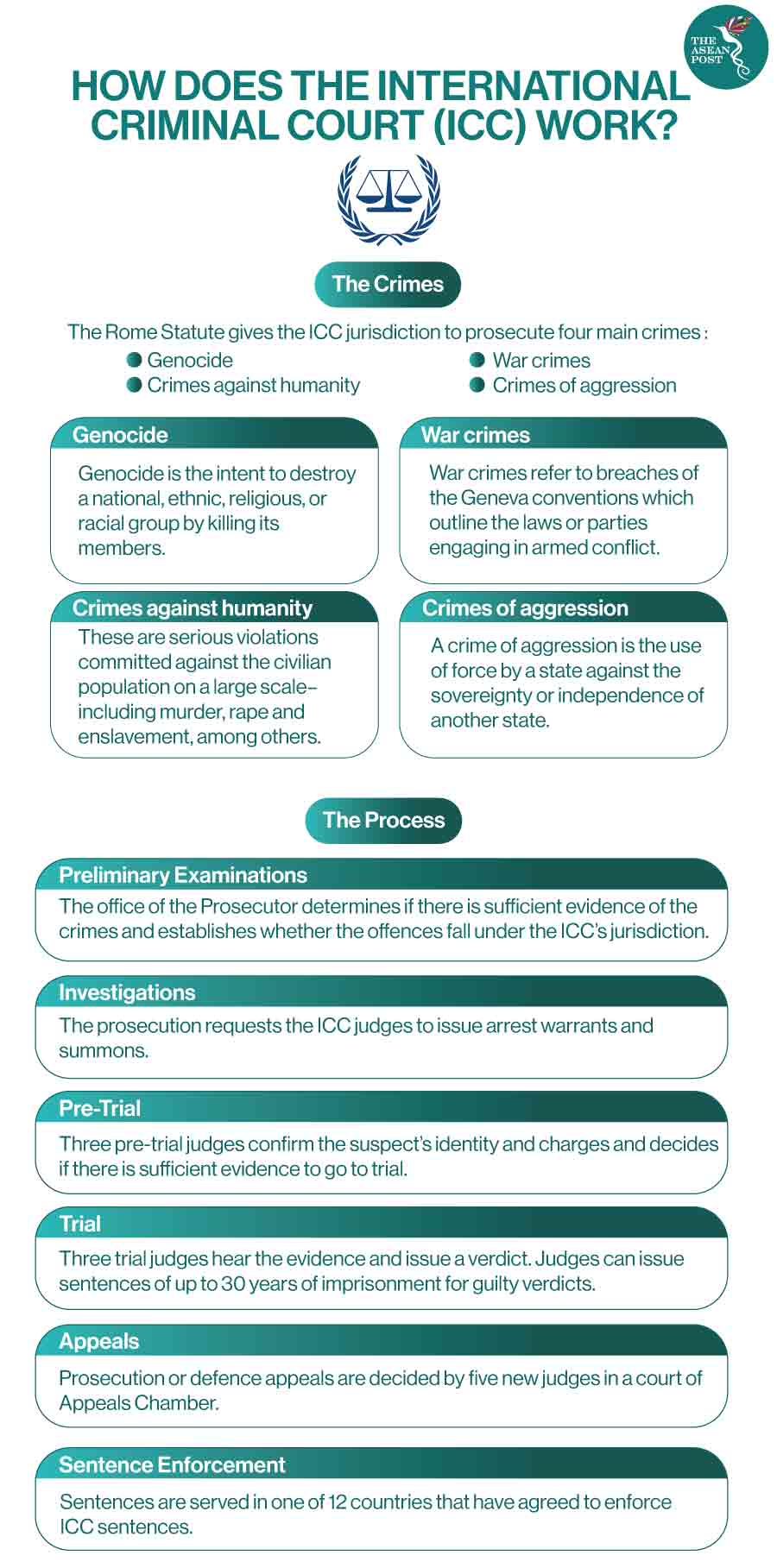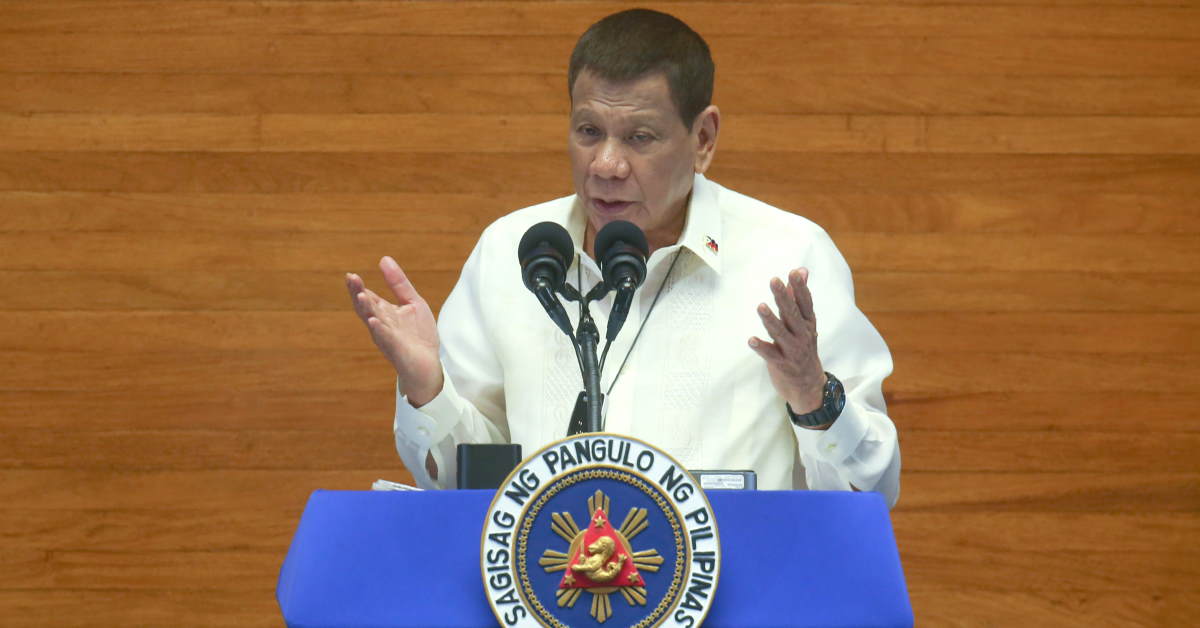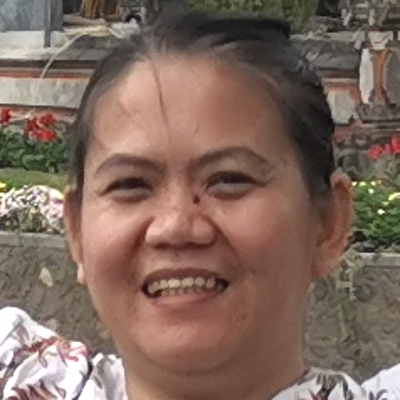The latest report on Monday (14 December, 2020) by the International Criminal Court (ICC) prosecutor Fatou Bensouda stated that there is “reasonable basis to believe” that the Philippines has committed crimes against humanity in connection with President Rodrigo Duterte’s so-called war on drugs operation.
However, Bensouda’s report stressed that her office "anticipates deciding on whether to seek authorisation to open an investigation into the situation in the Philippines in the first half of 2021,” attributing the delay to the coronavirus pandemic. This suggests that a decision on a formal ICC investigation may be possible in the first half of 2021.
Bensouda’s statement made headlines and is one of the most discussed topics in the Philippines until today. It generated various reactions and sentiments from Filipinos. President Rodrigo Duterte together with some political personalities reacted to the ICC report as well.
Members of the political opposition like former senator Antonio Trillanes and senator Francis Pangilinan, on the other hand, were euphoric, as if the ICC case was already won.
Context
It was a Filipino lawyer, Attorney Jude Sabio who filed a complaint at the ICC against President Duterte and at least 11 other senior government officials accusing them of “crimes against humanity” in the nationwide fight against illegal drugs.
Senator Antonio Trillanes, together with former Magdalo Party-list Representative Gary C Alejano, political personalities from the political opposition and staunch critics of Duterte also filed a supplemental complaint to the ICC against Duterte, which accordingly provided updates to the submitted communication of Attorney Jude Sabio before the ICC.
Likewise, activists and families of eight alleged victims of the Philippines’ “war on drugs” filed a complaint as well before the ICC, accusing President Duterte of “murder and crimes against humanity.”
The said group was represented by Attorney Neri Colmenares, a former Bayan Muna Congressman of the “Makabayan Bloc” in Congress and the current chairperson of Bayan Muna, a party-list political party.
Subsequently, a preliminary examination of the situation in the Philippines was announced by the Office of the Prosecutor of the ICC on 8 February, 2018. Nevertheless, in a press release by the ICC on 20 March, 2018, it clarified that “A preliminary examination is not an investigation. It is an initial step to determine whether there is a reasonable basis to proceed with an investigation. Specifically, under article 53(1) of the Rome Statute, the Prosecutor must consider issues of jurisdiction, admissibility, and the interests of justice in making this determination.
Under the Rome Statute, national jurisdictions have the primary responsibility to investigate and prosecute those responsible for international crimes. In conformity with the complementarity principle, which is a cornerstone of the Rome Statute legal system, and within the framework of each preliminary examination, the Office of the Prosecutor will engage with the national authorities concerned with a view to discussing and assessing any relevant investigation and prosecution at the national level.
In the independent and impartial exercise of its mandate, the Office of the Prosecutor will also give consideration to all submissions and views conveyed to it during the course of each preliminary examination, strictly guided by the requirements of the Rome Statute”.
On 19 March, 2018, the ICC was officially notified by the United Nations (UN) that the Republic of the Philippines had submitted a written notification of withdrawal from the Rome Statute, the Court's founding treaty, on 17 March, 2018. Withdrawing from the Rome Statute is a sovereign right of the Philippines. The withdrawal took effect on 17 March, 2019.
However, despite the Philippines’ withdrawal from the ICC, Bensouda’s office noted that it still has jurisdiction to investigate allegations of crimes committed by the state between the time the Philippines signed the Rome Statute in 2011 until it decided to leave on March 17, 2019. It also said the “exercise of the Court’s jurisdiction is not subject to any time limit”.
On 14 January, 2020, Attorney Sabio withdrew his “communication” before the ICC. In his 28-page letter addressed to ICC Prosecutor Bensouda, he said, “I fervently request that it be expunged or erased from the record and that it should not be used in any way in the ongoing preliminary examination.”
He also said in the letter that the ICC case had been used by opposition politicians as a “tool for propaganda” and should therefore be “thrashed and set aside”.

Rejoinders To Bensouda’s Report
In response to Bensouda’s report, President Duterte on Wednesday night (16 December) said that he is not afraid of suffering the consequences of his anti-illegal drugs campaign, saying his administration is just doing what is right for the greater good. He said, "I am not afraid. I am ready to die for my principles."
Duterte reiterated that he never gave any instructions to kill in the course of his administration's campaign against illegal drugs. He further contended that he never ordered state forces to shoot or kill anyone unless it was an act of self-defence.
“I said, go out and destroy the apparatus. If you end up shooting each other in destroying the apparatus, that’s goodbye. That’s why I said, I take full responsibility for my order.’ But remember, I said, ‘enforce the law in accordance with what you have learned then self-defence,” he said.
Duterte further contended that he stands by his principles and argued that his administration’s fight against the illegal narcotics trade is for the greater good of his country and its people. “I will die for my principles. If those principles will be the death of me, it’s fine. If I’m sentenced to life imprisonment, it’s fine as long as I did what was right,” he said.
House Representative Ace Barbers expressed his sentiment that ICC prosecutor Bensouda is indeed biased against President Duterte. He said, “How can there be reasonable basis when prosecutor Fatou Bensouda admits that she has yet to open an investigation into the situation in the country in the first half of 2021? At best, the report reflects her reasonable bias against President Duterte.”
The Philippine Drug Enforcement Agency (PDEA) also questioned the basis of the report of the office of ICC prosecutor Bensouda. In a statement, the agency said the findings of the office of ICC Prosecutor Fatou Bensouda is “unfair, unjustifiable and one-sided.”
The PDEA is sceptical about how the office of Bensouda came up with its findings based solely on open-source information. According to the PDEA, “like all other well-founded reports, the ICC report should show proof and undergo the standard validation and vetting process before arriving at any firm conclusions.”
Whereas, the Philippine National Police (PNP) said that the ICC needs to show “pieces of evidence” to support its claims that the government has committed human rights violations and crimes against humanity in the conduct of its anti-illegal drugs campaign.
The Department of the Interior and Local Government (DILG) on the other hand also denounced the report of the office of ICC prosecutor Bensouda as being false, misleading, biased, and without factual and legal basis. DILG Secretary Eduardo Año, further contended that the Philippines’ judicial system is fully functioning and that any alleged abuses in the drug war can and should be independently tried, heard, and decided by Philippine courts.
Likewise, Presidential Spokesperson Harry Roque cited the principle of complementarity in which the ICC can only investigate crimes against humanity if local courts are unable or unwilling to do so.
Roque said he was confident that the ICC will apply the April 2019 decision of its pre-trial chamber that prevented the prosecutor from investigating allegations of war crimes in Afghanistan, which cited, among others, the lack of cooperation from parties and the need for the Court to use its resources to prioritise activities that would have a better chance of succeeding.
Chief Presidential Legal Counsel Salvador Panelo complemented Roque’s statement on the complementarity principle of the ICC by saying that, the country's administrative authorities are able and willing to prosecute, as they have prosecuted any alleged crime against humanity in their jurisdiction. This means that the judicial system is “robust enough” to conduct criminal proceedings brought before the courts of justice.
Roque further said, “We have no obligation to cooperate because we’re no longer a member of the ICC. Should the ICC prosecutor pursue a preliminary investigation, it would be considered interfering with Philippine sovereignty. He also reiterated that the drug war should not be considered as “crimes against humanity” because it is considered a “legitimate police action” and state forces have no intention to kill civilians.
To note, the Philippines has no state-sanctioned killings, and that the country's independent courts could prosecute alleged violations by police and law enforcement agencies at any given time.
Hindsight And Perspective
At the preliminary examination stage, for ICC Prosecutor Fatou Bensouda to declare that there is “reasonable basis to believe” that “crimes against humanity” have been committed by President Duterte in the Philippine government’s fight against illegal drugs, despite the absence of a formal criminal investigation on the part of the ICC, is somewhat dubious and uncalled for.
At the very least, it would have been more fitting if she had exercised prudence and was a bit circumspect in her statements.
She should have at least explained, clarified, and specified what this “reasonable basis” consists of, how it was substantiated, and what is the standard of proof she applied in coming up with such a conclusion, despite the absence of a proper criminal investigation on the part of the ICC.
Likewise, it would have been better if Bensouda had thoroughly examined and also determined if the “communications” filed at her office were politically motivated or not considering what Attorney Jude Sabio had expressed upon the withdrawal of the “communication” he filed to ensure that her investigation was free of bias.
Sabio said in the letter sent to the ICC that the case had been used by opposition politicians as a “tool for propaganda” and should therefore be “thrashed and set aside”.
Furthermore, the one-sided statement from Bensouda is quite demoralising to the men and women in uniform who are working hard to make the Philippines a drug free country. Such a statement also sends a wrong signal to drug syndicates, drug lords, and drug peddlers, who are a threat to the Filipino people, especially the youth.
Conclusion
Nevertheless, in the final analysis, what matters most, is what the people of the Philippines think. In the eyes of the majority of Filipinos, the case filed against President Duterte before the ICC by the political opposition is a vicious effort to undermine a democratically elected president.
For many Filipinos, it is more than obvious that the intent in filing cases at the ICC by the political opposition is just to embarrass and shame President Duterte and to undermine the government of the Philippines.
Related Articles:

